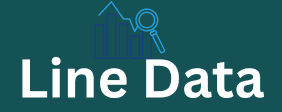United Kingdom – Politeness Cold calling isn’t just about dialing numbers—it’s about strategic persuasion, cultural adaptation, and building relationships. European markets have a diverse business landscape, meaning one-size-fits-all approaches won’t work.
This extended guide will give you deep insights into crafting a powerful, adaptable, and effective cold call strategy for different European markets.
Understanding Buyer Psychology in Cold Calling United Kingdom – Politeness
Successful cold calls leverage persuasion techniques based on human psychology.
🧠 Psychological Strategies for Higher Conversions: 🔹 Reciprocity: Offer value before asking for anything—provide insights, reports, or exclusive case studies. 🔹 Authority: Mention well-known clients or industry leaders using your solution. 🔹 Scarcity: Highlight limited-time offers or exclusive benefits. 🔹 Social Proof: Reference successful case studies or statistics on the impact of your solution. 🔹 Consistency: Encourage small commitments—once a prospect agrees to something minor (like a follow-up call), they’re more likely to commit to larger actions later.
💡 Example Call Using Psychology:
“Hi [Prospect’s Name], I noticed [Company] is bulgaria mobile database focusing on [specific market trend]. We recently helped [industry competitor] increase efficiency by 40% using [solution]. Would you be open to exploring how this could benefit your team?”
Country-Specific Cold Calling Strategies United Kingdom – Politeness
Europe’s business culture varies significantly between countries. Here’s how to tailor your script for each major market:
🇩🇪 Germany – Efficiency & Directness
✔ Keep it concise & professional—small talk is unnecessary. ✔ Be solution-driven—clearly state how you can solve their problem. ✔ Follow-up with detailed documentation—Germans appreciate precise information.
🗣 Best Opening: “Hello [Name], I’m calling invest in communication tools from [Company]. We specialize in [solution]. I wanted to briefly discuss how this can optimize [their challenge]. Would you be open to a short conversation?”
🇫🇷 France – Relationship-Building & Formality
✔ Start with a polite introduction—formality matters. ✔ Build trust before pitching—French professionals value long-term relationships. ✔ Don’t rush—expect longer decision-making cycles.
🗣 Best Opening: “Bonjour [Name], I hope you’re doing well. I’m [Your Name] from [Company], and I wanted to connect regarding [problem they face]. May I share how we’ve helped businesses like yours?”
🇬🇧
✔ Use a friendly yet professional tone—politeness is key. ✔ Humor works when appropriate, but keep it subtle. ✔ Show credibility—British professionals respect industry leaders and data-driven results.
🗣 Best Opening: “Hi [Name], I wanted to quickly introduce myself. I’m [Your Name] from [Company], and we specialize in [solution]. Many companies in [their industry] have benefited from our approach—can I share how?”
🇳🇱 Netherlands – Honesty & Directness
✔ Be straightforward and factual—fluff is material data unnecessary. ✔ Transparency builds trust—clearly state cost, value, and process.
🗣 Best Opening: “Hi [Name], I’m calling from [Company]. We help businesses like yours improve [specific area]. I’d love to explain how—do you have two minutes?”
🇪🇸 Spain – Warmth & Enthusiasm
✔ Start with an engaging tone—Spaniards appreciate friendliness. ✔ Allow for some casual conversation before diving into business.
🗣 Best Opening: “Hola [Name]! How are you today? I’m [Your Name] from [Company], and I wanted to share something that could really help with [specific challenge]. Do you have a moment?”
